
OR
Opinion
Afghanistan and the United Nations
Published On: September 23, 2021 06:45 AM NPT By: Shambhu Ram Simkhada
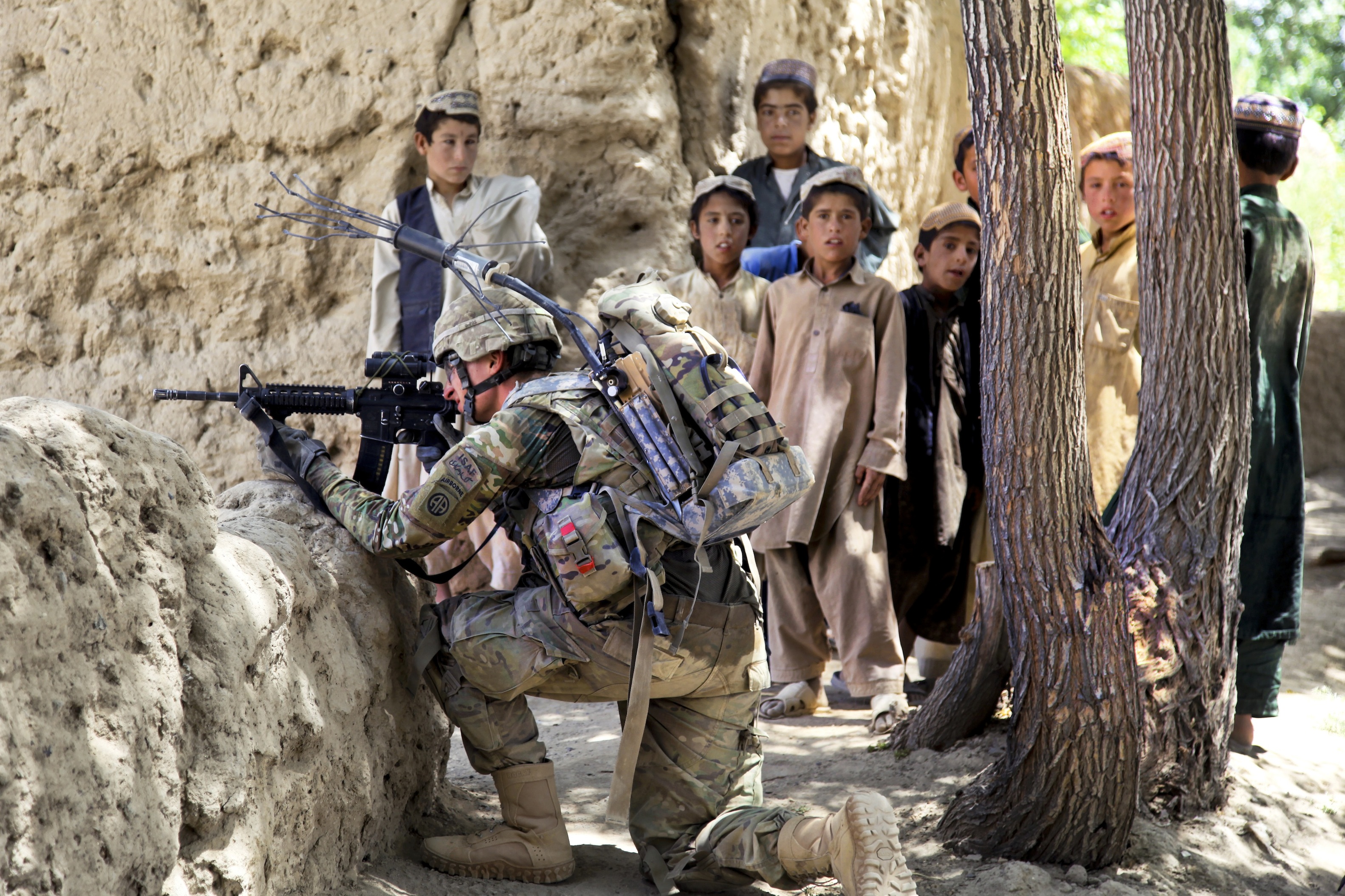
Was the US withdrawal from Afghanistan its defeat or a tactical move to refocus on a larger strategic contest it sees more seriously challenging its vital national interests and security?
After wasting 20 years, trillions of dollars and, 2,500 NATO soldiers and an estimated 150,000 - 300,000 Afghan casualties, to force the Taliban out of power, if half of the ministers in the new Afghan government are in the UN’s “B” list, whose failure is it, US-NATO-UN’s or Afghanistan’s? Where do the SAARC/SCO and rising Asia stand?
International Relations (IR) is the study of relations among the world’s major powers and their impact on the world and how others manage their affairs to survive and thrive. Despite the availability of sophisticated means, communication between the leaders of the current world’s two superpowers was stalled for over seven months. But soon after US withdrawal from and speculation of Chinese inroads into Afghanistan, the telephone line between Presidents Joe Biden and Xi Jinping sprang open. Can this be the silver lining in the dark cloud of dire predictions of worsening US-China relations (Destined For War) with devastating consequences for the world, which, the United Nations Secretary General (SG) admits is “at an inflection point in history”?
In seeking answers to these and other serious questions facing the world today, the logical starting point is to unhesitatingly make Climate, COVID and Afghanistan crises as the central issues to be debated at this year’s UN General Assembly (GA). And for real answers, SG Guterres must be able to bring major powers to pause and reflect, not play blame games, rush to declare victors and vanquished, then return to the business of politics, economics, diplomacy-security as usual.
Graveyard to governance
Images of the initial chaos at Kabul airport may have justified some debate on the timing and method of US pullout. But it is hard to argue against Biden’s assertion “why should US troops keep fighting and dying when Afghans themselves don’t want to fight for their own country?” Afghans, of course, have always fought against external occupation, Great Britain, Soviet Union and now the US, forcing them all to leave. That has made Afghanistan a “graveyard of Empires” and the Afghans one of the bravest peoples in history and geography.
The graveyard of the Afghans themselves is, however, many times larger than that of the invaders. Their sufferings and backwardness enabling groups like the Taliban to come to and now return to power is even more tragic. Just imagine, if the bravery and sacrifice of the Afghans could have been utilized in nation building, where would Afghanistan be today? That is what gives Afghanistan, along with Climate and COVID19 crises, a reason to rethink many of the assumptions on which we have based our wisdom and actions of politics, economics, security and governance including the role of the superstructure called the UN.
Rethinking power
To begin with, power is the central issue in the study and practice of politics, economics, diplomacy and defense, driving IR. Politics is about power and diplomacy and defense are instruments applying national power for the protection and promotion of national interests. But Afghanistan, Climate and COVID challenge the very notion and elements of power. How did a ragtag army of backward village youths defeat the much larger Afghan national security forces supported by the most powerful military alliance in the world? COVID makes us wonder why countries powerful enough to destroy the world several times over find themselves helpless in front of a tiny virus. Climate crisis questions who is powerful, humans or the creator of the world in which humans are only one among Mother Nature or God’s creations?
Together, Afghanistan, Climate and COVID-19 crises reveal the folly of contemporary power-interest paradigm in theory and practice. Even more worrying, if Vietnam, Cambodia yesterday, Iraq, Syria, Afghanistan today and who knows which and what tomorrow, the same fate is to repeat again and again, where is the wisdom, experience and learning? What good is power and how is national interest served by causing pain to the weak but also loss of face, lives and resources of the powerful?
Nationalism and universalism
As a US scholar himself had warned long ago “Imperialism is the logical consequence of Universalism''. Afghanistan proved that without local grounding, no amount of power can externally impose values just as no amount of power internally can subjugate the innate human will to be free. In a way, Afghanistan resembles the rise of populism, nationalism and retreat from or selective misuse of globalization. But then, Taliban-2 respecting globally sought and accepted universal human values is essential if Afghanistan’s new rulers want international recognition and assistance vital for them to survive and thrive. More broadly, irrespective of justifications based on religious, cultural, ideological uniqueness, economic compulsions or external threat, all rulers of the world can't go completely out of sync with the dynamics of time and technology.
This means, imposing US values universally may be untenable, but freedom of thought and its organized expression, rule of law, respecting gender, ethnicity, language and religion are human rights which no government in the name of sovereignty can deny. Wherever and whenever they are violated, people, including Afghans who have enjoyed those rights, will demand international advocacy must continue, and US support forthcoming. Respect for common human values must thus be the basis of a new global political, economic, social, security and FP architecture.
New global paradigm
Learning from the tragedies of the two World Wars, the UN was created to precisely lead the world from its old narrow national power-interest paradigm to a new global norms- and rules-based order at all levels of human behavior - individual, institutional and most importantly at the level of the most powerful institution, the nation-state for collective security, prosperity and dignity of the Human Family in a globalizing world. Sadly, had the UN succeeded, would the world be where it is now?
As humanity embarks on its journey toward the third decade of what we call the 21st Century, the world needs a new paradigm based on respect of universal human values. Only an enlightened scholarship can conceptualize statesmanship of wisdom and courage acting on the strength of moral and ethical values of common humanity can transform the world to such a new paradigm of harmonized national interests.
Threshold of power
Even in this age of unlimited access to information and knowledge, Kabul after Saigon is a sad commentary on human wisdom. But, seeing Kabul as the final symbol of America’s decline misses a serious point. If America was to open its borders, 25 percent (I am estimating of course) of the people of the world would rush to enter. So, if the crowd and chaos at Kabul airport was a surprise, it was only to those Americans themselves who think the world hates them and America bashers outside. Respect of common human values attracts people of the world to the US and helped make it and now keep it a superpower.
In rushing to declare victors and vanquished in Afghanistan, American intellectuals themselves, let alone critics, make another serious mistake. The US had enormous capability while leaving Saigon and has now as it decided to leave Kabul. It can destroy not just Vietnam and Afghanistan but the world many times over if it so decides, as it did in Hiroshima and Nagasaki, to demand Japan’s surrender in World War II. So, rather than the actual power, it is the moral, ethical, strategic and global considerations that create the dilemma in the use of certain types of power, forcing the US not to cross the threshold and withdraw as vanquished.
More significantly, as a democracy, it is the power of public opinion which demanded withdrawal from Vietnam and is demanding the end of the so-called “Forever Wars” in places not directly linked to vital US national security interests. The national political and economic need and popular demand to refocus on internal infrastructure and strength by giving up part of the post-World War II "international policeman” role is what prompted Presidents Obama to promise the withdrawal of US troops from Afghanistan, Trump to start negotiations with the Taliban and Biden to order the actual withdrawal. What happens to the threshold in the exercise of nuclear weapons in countries without the freedom of similar expression of the power of public opinion?
This then keeps open the question, was US withdrawal from Afghanistan its defeat or tactical move to refocus on a larger strategic contest it sees more seriously challenging its vital national interests and security? This is the part that makes the resumed Biden-XI communication so important and a new global architecture a vital necessity. Because, only such a new architecture can replace the hegemonic and conflictual polarity by cooperative and managed competitive plurality as the new paradigm of great power relations in the 21st Century and beyond.
Apparently, not allowing their competition to degenerate into conflict was the focus of the Biden-Xi conversation. Whoever took the initiative, this was statesmanship of wisdom and courage. Because the risk of crossing the threshold in the use of more lethal power in conflict between great powers, considered unusable by the US in Vietnam and Afghanistan and by China in Vietnam, makes the management of US-China competition vital not just for them but for the world. AUKUS may thus be a new signal in the Indo-Pacific sea lanes.
Can the Biden Doctrine of ending unnecessary external military involvements with Xi’s Win-Win Theory of IR converge around respecting basic human values within a new global paradigm? If they do, they together usher in a new transformative epoch in IR, more foresighted than Dumbarton Oaks and Yalta, creating the current global order and its custodian the UN, after the failure of the League of Nations and the tragedies of the second World War. Or is the UN destined to meet the fate of its predecessor institution the League of Nations?
(The author is a former Nepali PR to the UN and Ambassador to Switzerland. He is currently involved in transformative thinking, writing and lecturing on IR.)
You May Like This
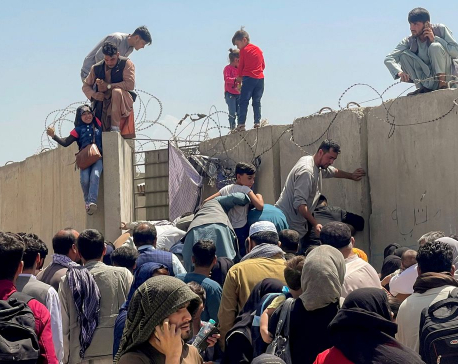
'Don't panic and get back to work', Taliban order former officials
August 25: Ashraf Haidari, an economist at the Aghan finance ministry, was waiting anxiously at home when a call came... Read More...
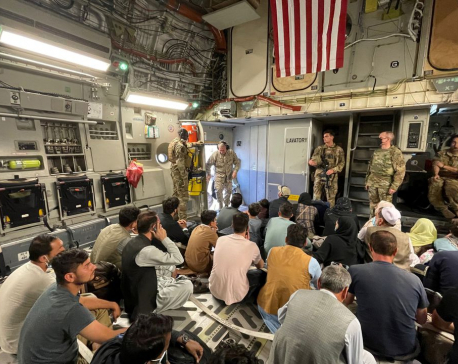
Taliban keep some evacuees from reaching Kabul airport, as U.S. vows to finish airlift
KABUL, August 19: Armed members of the Taliban kept people desperate to flee Afghanistan from reaching Kabul's airport on Wednesday,... Read More...
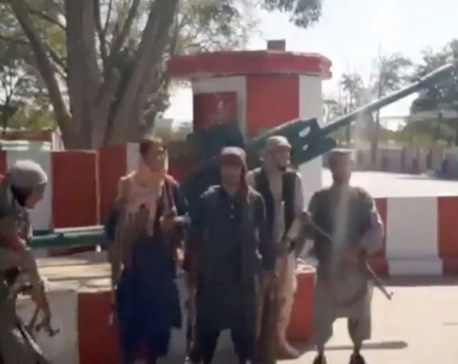
Taliban advances in Afghanistan, U.S. and Britain to evacuate embassies
KABUL, August 13: The Taliban claimed control over two of Afghanistan's biggest cities on Thursday, according to media reports, as the... Read More...
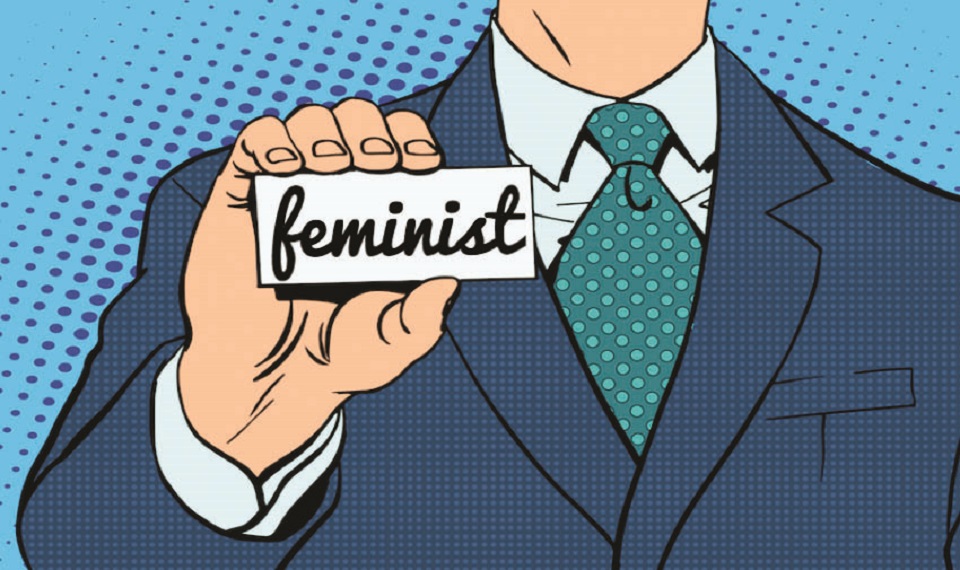
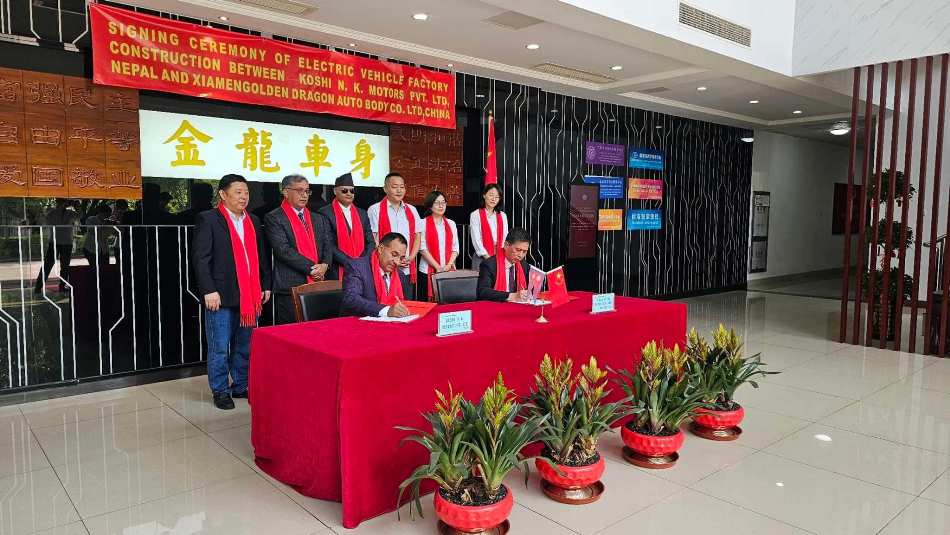
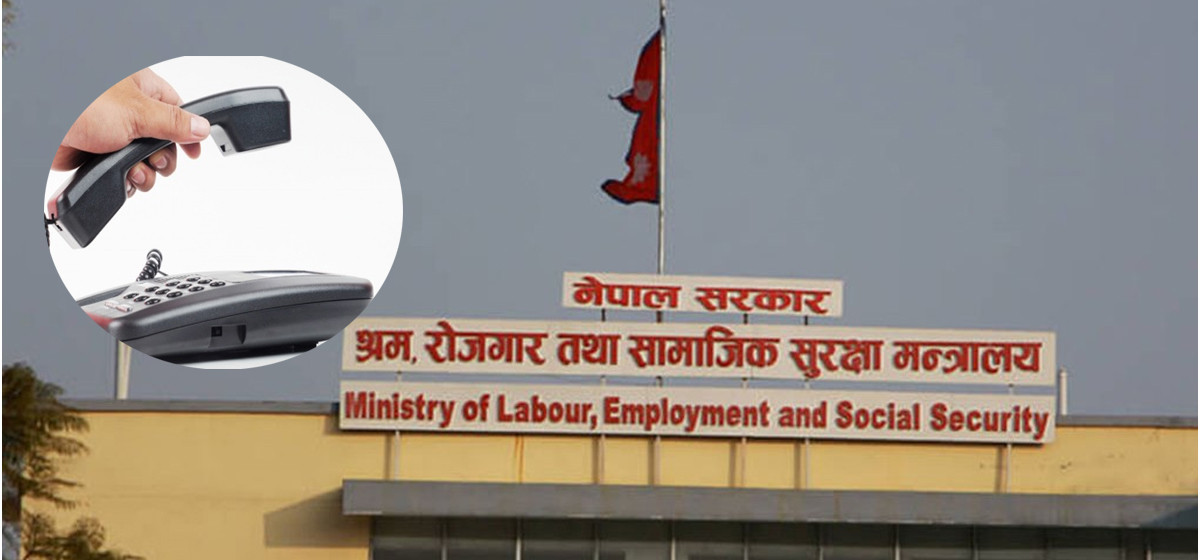
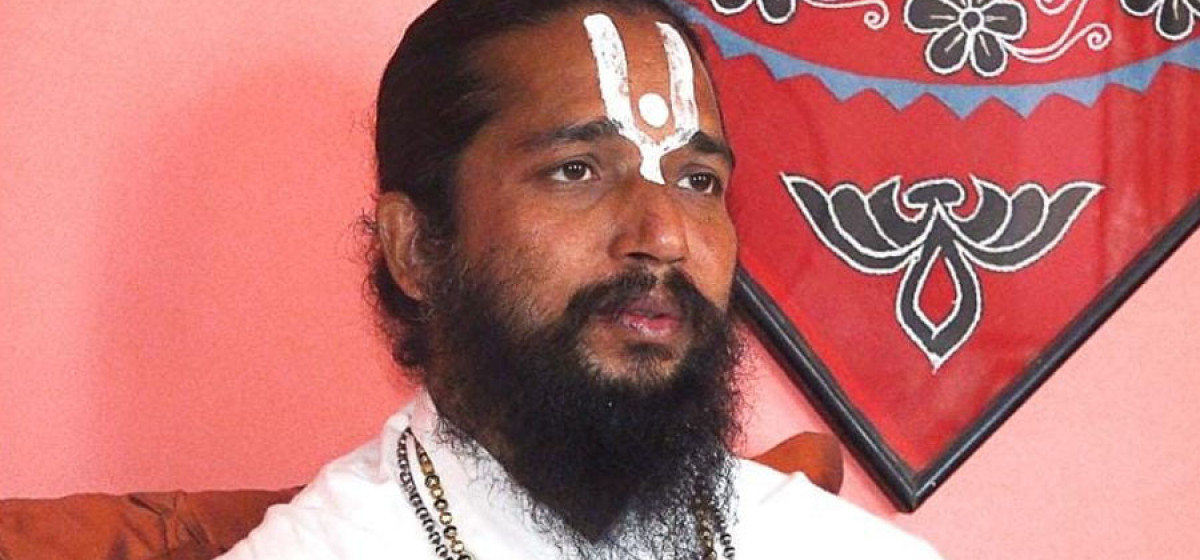
Just In
- Govt urges entrepreneurs to invest in IT sector to reap maximum benefits
- Chinese company Xiamen investing Rs 3 billion in assembling plant of electric vehicles in Nepal
- NEPSE inches up 0.07 points, while daily turnover inclines to Rs 2.95 billion
- Gandaki Province reports cases of forest fire at 467 locations
- Home ministry introduces online pass system to enter Singha Durbar
- MoLESS launches ‘Shramadhan Call Center’ to promptly address labor and employment issues
- Biratnagar High Court orders Krishna Das Giri to appear before court within one month in disciple rape case
- Ilam by-election update: UML candidate Suhang maintains lead



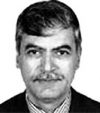
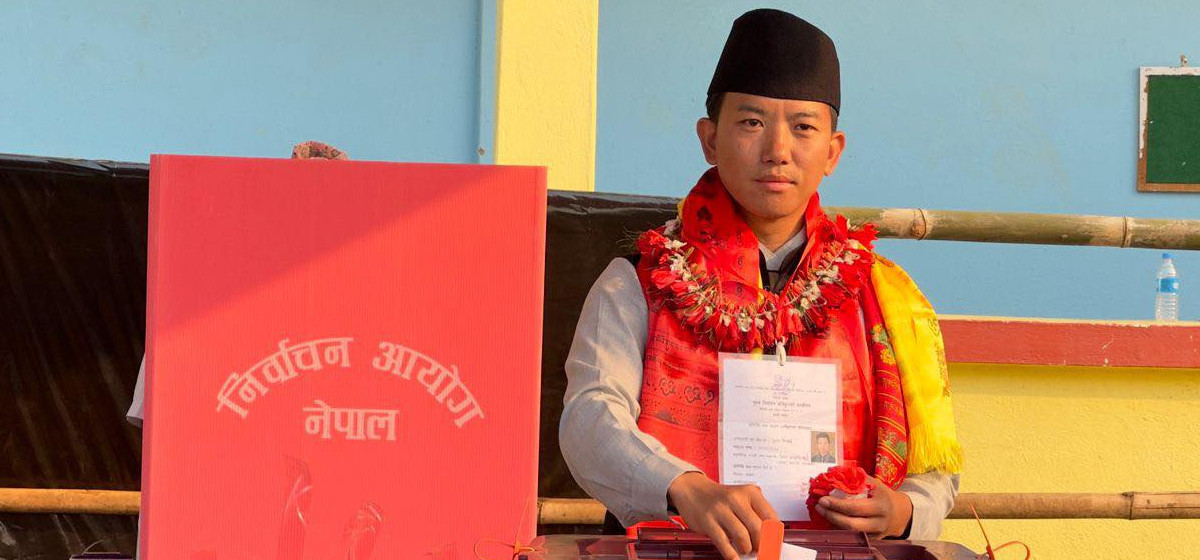
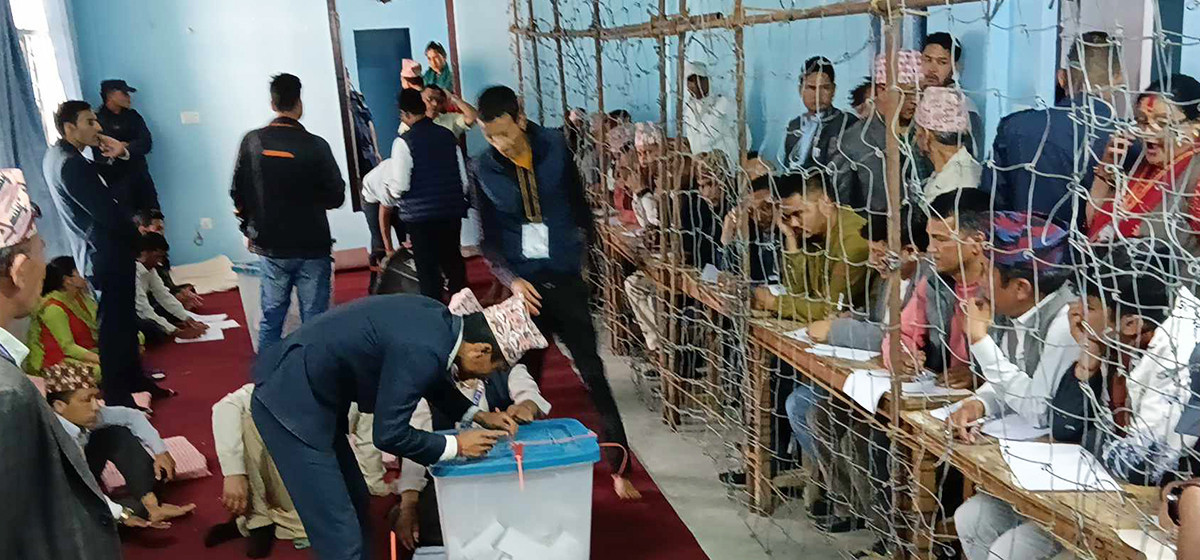

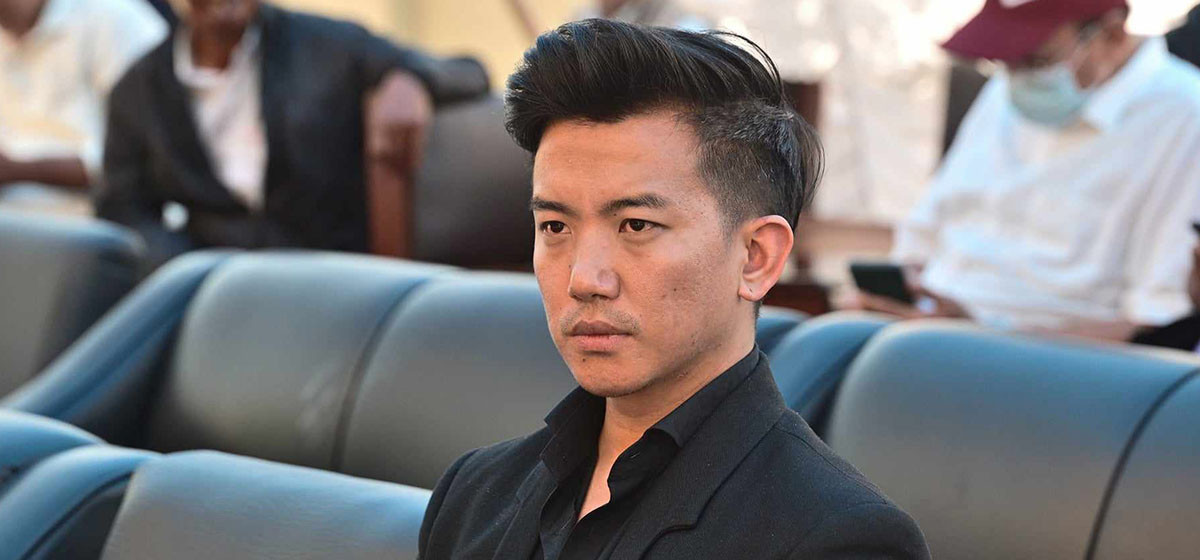
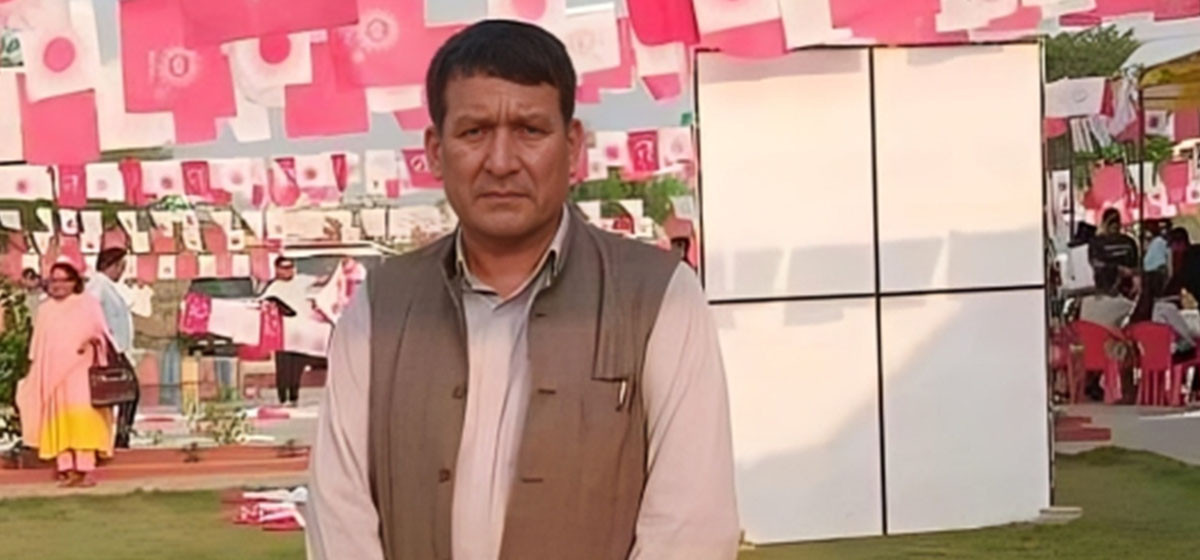
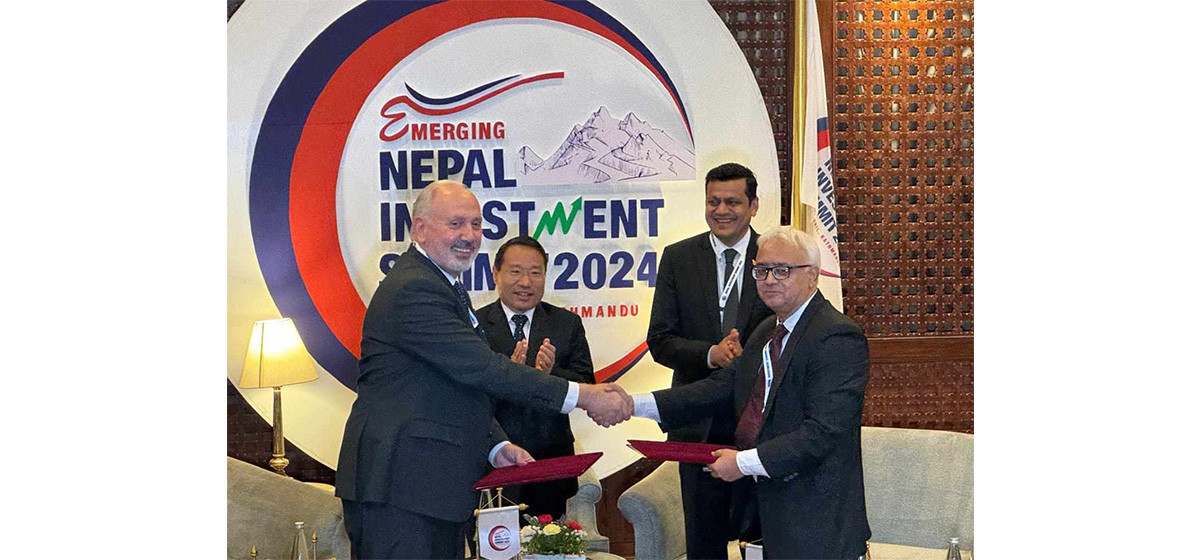


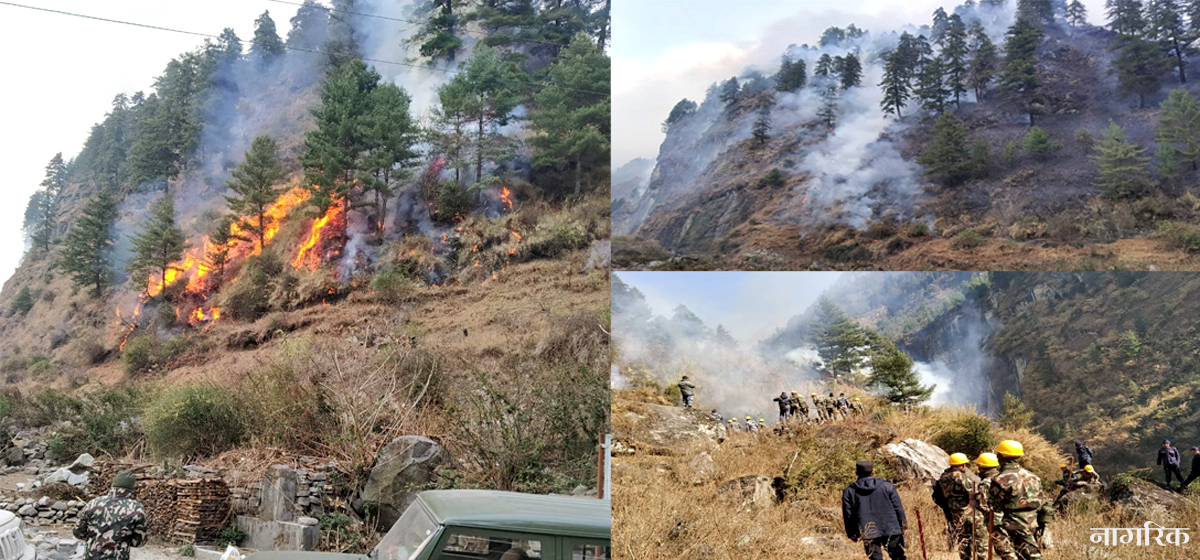
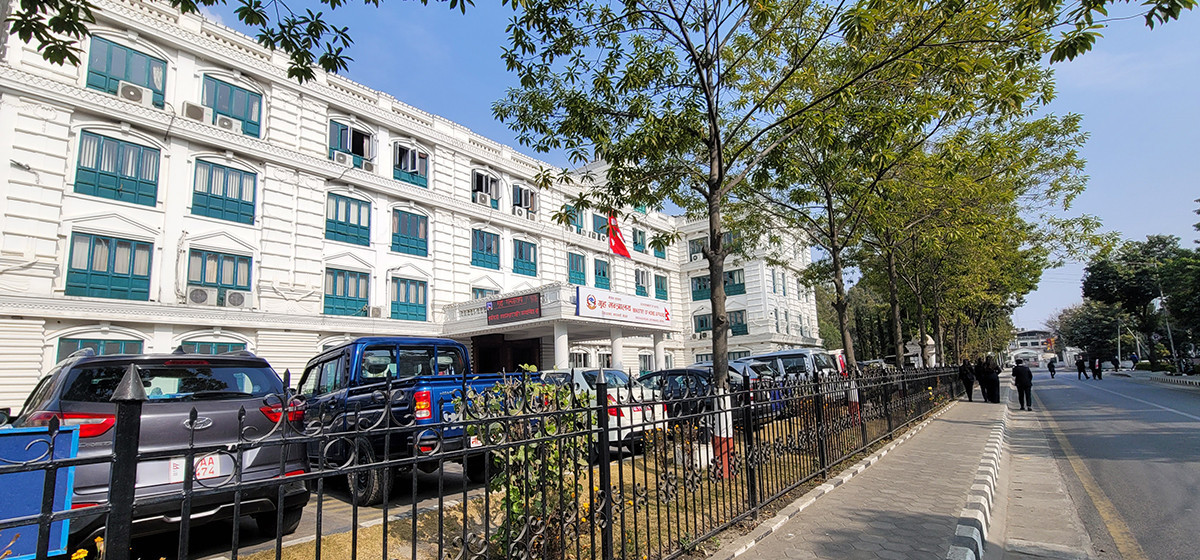
Leave A Comment